Cat poop has a strong and distinct smell, it is not something you want to smell every time you go outside.
If there is cat poop in your garden the smell will linger for a long time if it is left.
However, the problem of cat poop odours outside has a multi-step solution, you can’t just remove the poop and expect it to never happen again.
Follow these steps to take care of the problem effectively:
Contents
1. Remove Cat Waste
The first thing to do is remove any solid cat waste you can find.
This can be picked up using a plastic bag which can then be tied and thrown in the bin.
If the cat waste is buried in the garden it may still smell and the cat will likely return to the area and use it time and time again as a litter tray.
The one positive about the bad smell is that it will help you locate the poop quickly so you can pick it up and dispose of it.
2. Rinse the Area
With the solid faeces now removed, spray the area with a hose to help dilute any remaining waste.
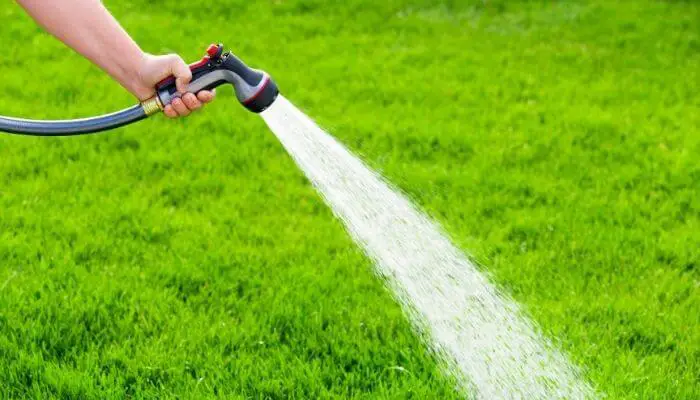
The water is going to help get rid of the smell so rinse the area that smells very well.
Spray the area thoroughly, not forgetting the patio, patio furniture, sidewall of the house etc.
Keep on watering until you can’t smell the poop anymore.
3. Clean the Area
After you have sprayed the whole area with water, it’s time to scrub.
Put on a pair of cleaning gloves, grab a scrubbing brush and fill a bucket with soapy water.
Use the brush to scrub any concrete, furniture and other non-porous surfaces.
Although the issue is poop odour, there’s probably going to be urine in the area too.
This may include territory markings so scrubbing is going to help remove all of this so the area can once again be a cat-free zone.
Standard soap is usually enough for this step but you may want to choose a cleaner based on the type of area you are cleaning.
Using a cleaning agent is important not only for removing the smell but also helping to remove any territory marks made by the cats.
Once you have scrubbed the area, rinse it with clean water.
4. Apply An Appropriate Cleaner
For a long-term effect, wait for the area to dry and then apply a final spray of a cleaner. Enzyme-based cleaners are a good choice as they are often used for neutralising urine smells. Using this will help to break down any remaining odours.
If you don’t have an enzyme-based cleaner you can use a mix of white vinegar and water (1:2 ratio of vinegar to water).
There are outdoor odour eliminators designed specifically for use against pet odours (including faeces, urine and vomit).
Whichever type of cleaner you select, spray it in the area to neutralize and remove odours.
5. Discourage Cats From Using the Area
Finally, you can take steps to discourage future visits from cats.
Let’s face it, you’ve worked hard to remove the smell so you probably don’t want to be doing this again any time soon so to prevent the smell from returning it’s a good idea to make the area less inviting to cats.
Some simple ways to make a garden less inviting for cats include:
- Keep all rubbish bins securely closed
- Don’t leave food outside
- Make sure bird feeders are placed high off the ground
- Use rocks to cover exposed soil
- Install netting
- Make fencing more secure against cats
- Use smells around the garden that cats don’t like e.g. lavender, citrus, coffee
Discouraging Other Cats From Using the Area
If the cause is a neighbours cat then you may want to find ways to keep cats out of your garden.
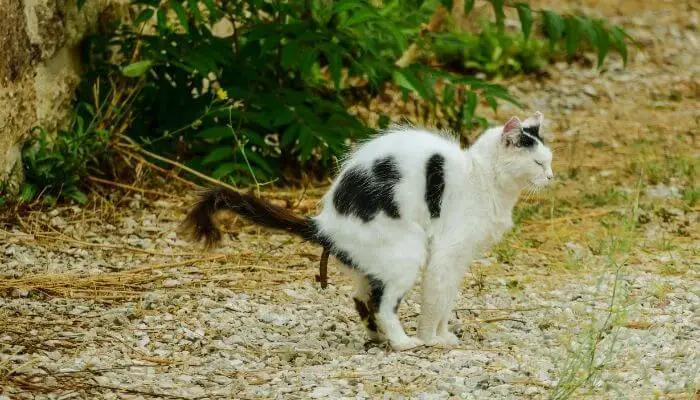
Possible solutions include water spray deterrents, noise deterrents, fencing, plants and smell that cats don’t like including home remedies such as citrus or lavender.
Check out our article on how to stop cats pooping in your garden for a closer look at these methods and more.
Discouraging Your Own Cat From Using the Area
If it is your cat and they are using an area of the garden you don’t want them to use, you may want to create an outside area that is more suitable for them.
For example, you can make a dedicated sand patch for your cat to use or plant catnip in the preferred area to make it more inviting.
Take steps to make the preferred area more inviting and the other areas either inaccessible or less desirable.
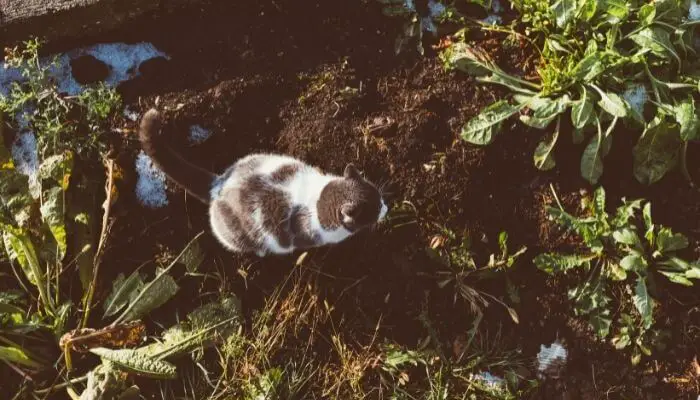
If you want your cat to use a litterbox, take a look at the possible reasons they are not already using it.
The size and positioning of the box, the type of litter and how often the box is cleaned are all possible contributing factors to why a cat isn’t using their litterbox.
If your cat was using their litterbox without a problem and has suddenly stopped, it could be because something has been changed (e.g. the litter being used), there is not enough litter boxes for the number of cats you have (have at least 1 per cat plus an extra 1) or that the litter box is not being cleaned often enough.
Cats like routines and don’t like things to change so if there has been a recent change to their home or routine then they may be feeling stressed which can result in behavioural changes such as not using their litterbox.
Once you have an idea of the problem it is easier to fix it and you can then develop a good routine for you and your cat.
Final Thoughts
Odours such as cat poop and urine can be overpowering and often linger for a long time if they are not cleaned.
Fortunately, these smells can be removed. It’s best to be thorough with the cleaning of the area as this will help to deter future visits.
Whenever you notice a cat has done their business outside, clean the area immediately to prevent the problem from developing.
Be aware if your cat’s poop is an unusual colour such as yellow or green it will likely smell even worse as it can be indicative of a health problem so do get them checked out by a vet.
As an Amazon Associate I may earn a small fee from qualifying purchases at no extra cost to you. This helps us run the site, so thanks for your support!

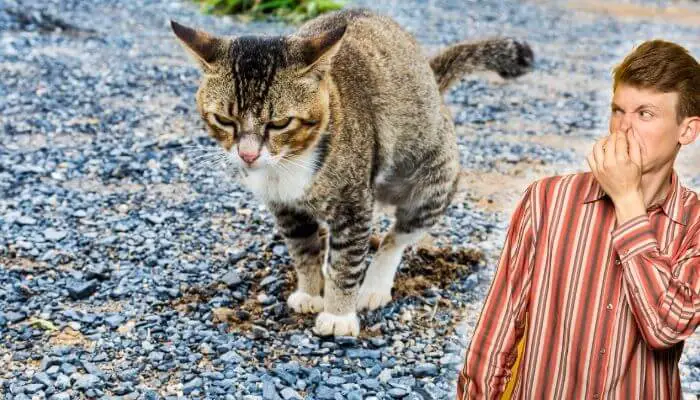

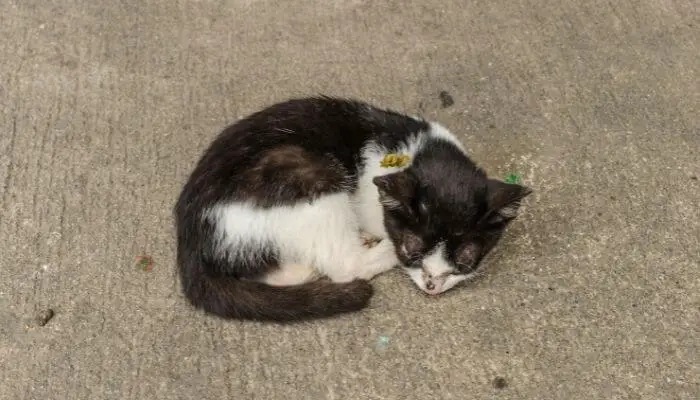
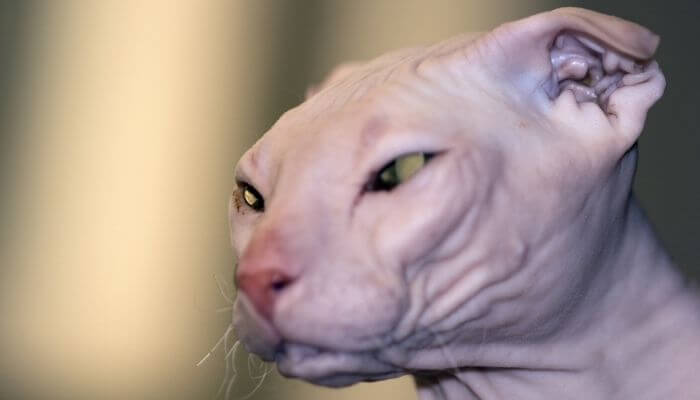
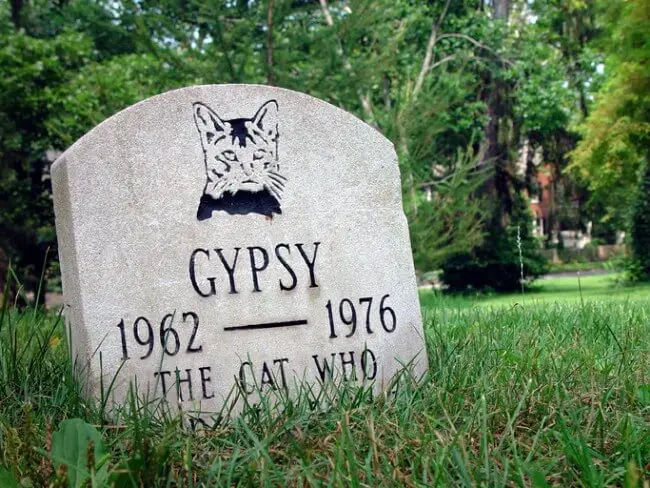
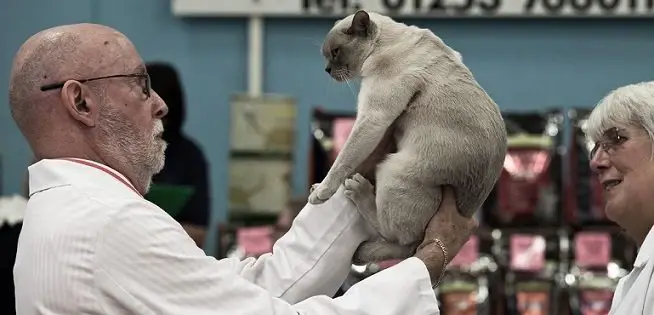

Leave a Comment